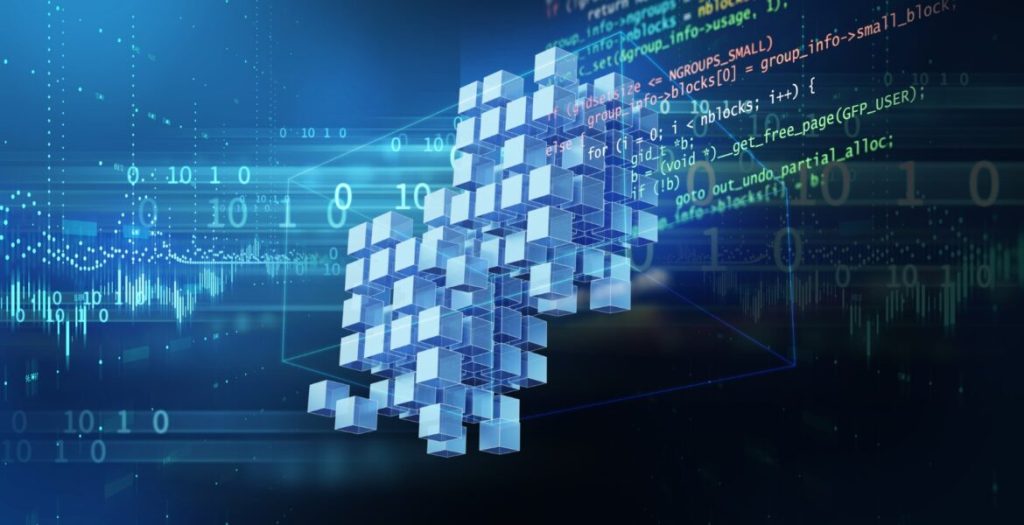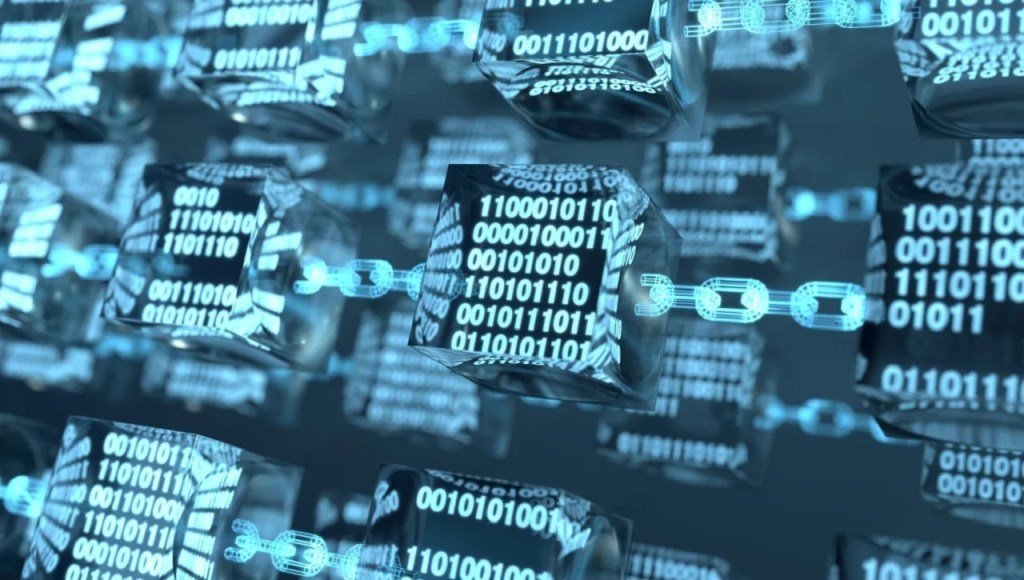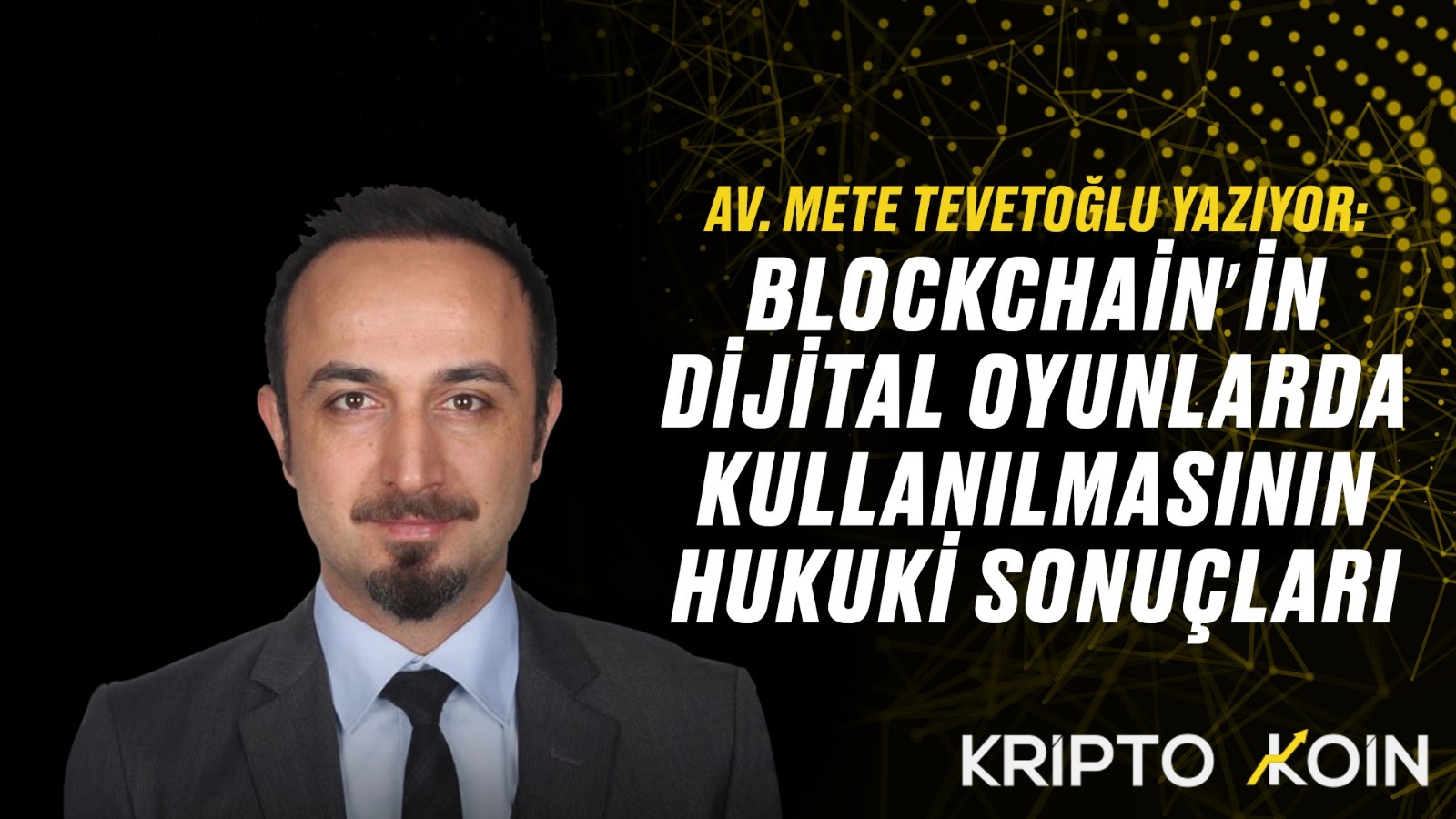Blockchain-based games are a phrase we hear a lot these days. It is important to determine what is meant by this very popular expression, to understand the subject and to interpret it correctly in terms of law. It would be useful to take a brief look at Blockchain first, then its integration into digital games, and finally the legal framework of the subject.
What is Blockchain?
Blockchain is the underlying technology of cryptocurrencies and assets. At its core is a model in which information is recorded in a way that makes it difficult or impossible to change the system. Unlike a typical database, a blockchain aggregates information into groups known as blocks, which hold sets of information. Blocks have certain storage capacities and are closed when filled. Thus, a data chain known as Blockchaini is formed by connecting to the previously filled block. All new information following the newly added block is compiled into a newly created block. After this block is filled, it is added to the chain and becomes a ring.
Satoshi Nakamoto, who has no clear information about him, is considered the inventor of Blockchain. Satoshi Nakamoto revealed the bitcoin blockchain for the first time in 2008. Since this date, this technology has developed and found many applications beyond cryptocurrencies. Satoshi Nakamoto published the first whitepaper on technology in 2009, the whitepaper stands out with its decentralized feature. Since 2009, digital ledger technology has evolved, revealing new applications that make Blockchain history. In this article, we will discuss the integration of Blockchain into digital games, which is one of the new application areas of Blockchain, and the legal aspects of these integrations.

Innovation in the Digital Game Industry: Blockchain!
We can define the concept of blockchain game as a type of digital game with features using Blockchain technology based on cryptography. As we mentioned above, Blockchain technology has been around for a long time. However, the use of Blockchain in digital games came to the fore in 2021 and gained popularity. Blockchain-based gaming has increased by 2,000% since the first quarter of 2021, accounting for 52% of all blockchain activity, according to the DappRadar x BGA Games report. Let’s add that the focus of ICOs on gaming tokens plays an important role in this case.
If we take a closer look at digital games, here are the play-to-earn (“play-to-earn”) games that generally fall into two categories. P2E”) or play-to-win (“ P2W We see that it is played as “”). Of course, there is no reason not to hear about innovative and attractive models like learn to earn soon. Blockchain-based games are mostly organized as P2E. In P2E games, players are offered the opportunity to earn income through crypto money or NFT from the games they play. Thus, players can be involved in the game’s economy and decision-making processes. Long live digital democracy. The most popular models of P2E games today are Game and Finance, which are developed from the English equivalents of the words game and finance. GameFi “lari. Decentralized finance in GameFi games created on the blockchain network (“ DeFi ”) structure can also come to the fore. In P2W games, however, players do not have to make a payment. However, it is possible to become more qualified than other players and access different features by paying for various assets in the game.
Why Blockchain Is Preferred In Digital Games As A New Challenge And Business Development Area?
It is clear that the use of Blockchain technology in digital games adds innovation and excitement to the gaming industry. First of all, Blockchain promises to improve security in games. It proposes more democracy. To the extent that there is decentralization and immutability, democracy and reliability increase in the games. For example, in the event of a cyber attack threat, the target will be removed from a single center thanks to the decentralized game structure and this possibility will be minimized by spreading to the entire system. On the other hand, thanks to Blockchain, the types of in-game assets and the ability to make transactions related to them have increased significantly. In such games, when a character is purchased, that character can have special qualities according to the player, so players are more interested in investing in the game. However, players can exchange different in-game achievements with each other, which increases the interest in games created using Blockchain technology.

NFT or token generation and use in games is possible thanks to Blockchain. These NFTs or tokens can be sold, moved, auctioned, or the subject of prize competitions. The fact that players can use the digital assets underlying their tokens in other Blockchain games is a complete example of the network effect. In addition, in games that are structured with a decentralized model, players have the chance to own their earnings in the game. Not to mention the possibility to use them in other crypto games in an integrated, listed form. Ultimately, the ease of payment methods brought by Web3 and crypto money assets plays a big role in the preference of these games. When the gamification and tokenization aspects of the Metaverse are supported by games, a whole new digital economic space will await us.
The Role of NFT in Digital Games
NFTs can be characterized as records associated with specific digital or physical assets on the blockchain. In games using the blockchain, NFTs are used to create rules, characters, weapons, cards, etc. that add value to the game. used to create. In P2W games, players can gain an advantage against their opponents with their NFTs. In P2E games, players can trade their NFTs and earn money. The best examples are the types of games where certain cards or tokens are purchased that allow players to participate in in-game decision-making or give them in-game voting rights. The attractive part is that players can convert the crypto assets they earn in the game into non-crypto/real money and transfer it to their bank accounts. This situation can also be interpreted as NFTs winking at financial games and games of chance.
Legal Evaluation of Blockchain Use in Digital Games
However, the legal side of the matter is a different matter. Blockchain games have enormous potential to continue growing and expanding the gaming industry. However, for both game developers and gamers, every game and game crypto asset always needs to be subjected to an up-to-date and healthy legal analysis before it is produced and used. The reason for this is that we are on a changing and developing regulation ground. In addition, contrary to popular belief, the subject includes quite multi-disciplinary aspects.

The lack of a globally accepted legal qualification of NFT and crypto assets, especially NFT, is the main reason that confuses every Blockchain, game and Blockchain-based game project. Because in the context of digital games, NFT data often represents an underlying digital asset, typically digital art, videos, characters, items, or a piece of virtual land. In-game Blockchain productions also remain in the same position, as the legal nature of crypto assets is affected by the legal regulations to which the underlying asset is subject. Attribution can sometimes be anything in law. Conflict in attribution can create conflicts for game NFTs and Tokens that are difficult to foresee, perhaps more difficult to resolve. Design and patent discussions in blockchain-based games are also getting deeper day by day.
Gambling, which is the scourge of games, is another aspect that needs attention, as NFTs have a value in digital games. The main factor that makes some activities that can be seen as gambling in traditional games not gambling in digital games is referred to as the absence of non-game values of the assets in the games. However, when it comes to in-game assets, which include crypto assets, which can be moved out of the game with NFT – Token or smart contract, the delicate line between gaming and gambling can become rather vague.
It is indisputable that NFTs such as lands and cards in the game have a value when it comes to generating an income in P2E games. As a matter of fact, in Blockchain games, players can put their assets into a bet or exchange with other players. Therefore, it seems difficult for certain types of Blockchain games (especially games involving bets) to be legally accepted in platforms and regions with very strict restrictive laws on gambling.
The high PR value of the blockchain-based game expression does not mean that the publishers of these games are not and will not be liable to MASAK. On the contrary, KYC (Know Your Customer) and AML (Anti-Money Laundering/Anti-Money Laundering) regulations should be observed in games involving crypto assets. KYC regulation should be sought in games that involve the use of crypto assets on the blockchain. In these games, the identity, address and history information of the players who will participate in the game should be requested. KYC regulations appear to be mandatory in most countries as a condition for issuing a license to bet on cryptocurrency betting games. However, KVHS status will not occur in applications where Blockchain is only used as a DB in the game.

There is always a tax dimension to the issue. Whether in P2E or other categories, it is possible for crypto assets obtained from games to be subsequently converted into real money and thus subject to income tax if profits are made. Value variability of assets in Blockchain-based games, the way and time of conversion into cash are important in the formation or non-occurrence of tax.
The way crypto assets in the games are acquired, the rights and powers they grant to their owners, should also be analyzed in terms of corporate law. If it is not desired, positioning these assets away from the definitions of stocks, securities and derivatives is another important point that should not be overlooked.
It is possible to make qualified preliminary legal compliance reviews and detailed regulation comparisons in blockchain-based games. Doing so is essential for the correct, efficient and enjoyable use of Blockchain in games as it will enable safer products, services and experiences for game entrepreneurs, publishers and gamers, as well as for the Blockchain ecosystem.




